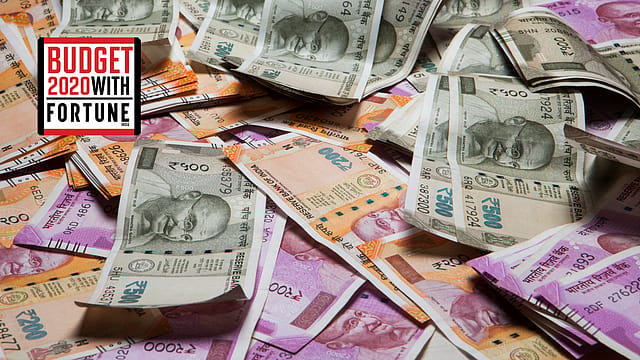Budget 2020: Hopes and expectations
ADVERTISEMENT

Every year, before the announcement of the Union Budget, there are various requests for the finance minister from various quarters for sops and benefits, all hoping to lighten their tax burden. This year is no different; in fact, the clamour is louder than ever before. The finance minister has a tougher task this year, as the economy is struggling on account of various factors. With a decreasing growth rate, rising prices, slump in demand, and some key industries like real estate, auto, infrastructure, and retail going through some of their toughest years in recent times, it is not an easy task. There is a common refrain from all quarters that urgent steps need to be taken to revive demand by reducing tax rates for individuals which can help in increasing their purchasing power. Expectation has been further fuelled by the recent corporate rate cuts announced by the finance minister. At the same time, there has been a deficit in the revenue collections, thus making it a difficult balancing act.
In view of this, it may be a good idea to consider what else she could do (apart from tweaking the tax rates or tax slabs) to give more money in the purses of the common man and avoid making a big sacrifice on the revenue side. Here’s a quick look at some of the probable avenues.
Raise cap on housing interest deduction
The deduction for housing loan interest for self-occupied property is restricted to ₹200,000 per annum. Last year, the government had taken the positive step of removing the notional taxation of the second self-occupied house property. However, the interest deduction remained capped at ₹200,000 cumulatively for both house properties. Earlier, the individual had the facility to claim interest deduction for the second property also, but this was removed last year. As a result, even if one has taken a loan for both properties, the interest deduction is now restricted to a total of ₹200,000 only. For let out properties also, an amendment was brought in two years back, whereby the set-off of loss from house property against other heads of income was capped to ₹2 lakh. This move also adversely impacted the taxpayers who had invested in more than one house property by taking loan.
Investment in housing is a long-term investment decision and ideally introducing a cap should have been grandfathered to protect such taxpayers who had already made the decision based on the extant law. Given that the construction industry is going through one of the worst slumps ever, raising the interest deduction to ₹300,000 and increasing the limit for set-off of house property loss to ₹300,000 would give a fillip to the industry and rake in GST revenue as well.
Relax norms for LTA exemption
The rules with respect to leave travel allowance (LTA) need some drastic changes. This is one of the standard compensation items offered by most companies to their employees. LTA can be a powerful tool for encouraging travel and tourism in the country, as the tax deduction is linked to actual expenditure. Firstly, allow the deduction every year (aligning it with the financial year), instead of keeping it confined to twice in a block of four calendar years. Secondly, instead of limiting the expenditure claims to the actual travel cost, allow deduction with respect to boarding and lodging expenses also during such travel. This will encourage people to travel on annual holidays. On the industry side, it will boost tourism, revive small businesses and will also help bring in GST revenue for the government.
Amendments in 80C
Currently, the deduction under sections 80C, 80CCC and 80CCD is limited to ₹150,000 (with an additional ₹50,000 available for employer’s contribution to National Pension Scheme (NPS)). While sections 80CCC and 80CCD deal with pension funds, section 80C encompasses a motley range of investments and expenses to claim, ranging from insurance payments to children’s tuition schemes and home loan repayments, etc. With rising costs, the overall limit of ₹150,000 for such a variety of items is woefully low. It should be increased to at least ₹250,000.
The countdown has begun and there are only a few days to go before the Union Budget is announced. As in every year, we hope for the best in the coming year.
Views expressed are personal. The author is partner-personal tax, PwC India